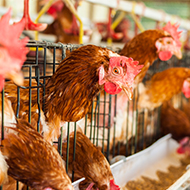The charity has funded new power generators for clinics and shelters.
Battersea has announced that it has funded the provision of 49 electric power generators to veterinary surgeries and rescue shelters in Ukraine to help them continue to provide care.
In recent months, power blackouts have become a common problem faced by veterinary clinics in the country, preventing them from performing emergency procedures and essential operations.
With the help of the generators, it is estimated that clinics will be able to treat 4,500 animals each month and shelters will be able to care for 8,000 cats and dogs. Many shelters are operating at full capacity, with thousands of owners forced to abandon their pets as the conflict in the country continues.
The purchase and distribution of the generators was overseen by Ukrainian Pet Association Worldwide (UPAW), an animal aid distributor set up in April 2022. Last year, Battersea gave an emergency grant of £200,000 to support the work of the organisation.
Paul Marvell, director of global programmes at Battersea, said: “We firmly believe the best way to help effect positive change for these animals is by sharing our resources with organisations like UPAW.
By combining our financial support with their detailed knowledge of the Ukrainian animal welfare landscape, together we’ve been able to successfully purchase and deliver equipment and supplies that will improve the lives of so many innocent animals – all whilst making things that little bit easier for those people going above and beyond to care for them.”
The generators are already making a difference. A member of a veterinary team working at the DarynaVet clinic south of Kharkiv said: “We’ve been having to perform surgery wearing only head torches. Having the generator means we no longer need to cancel emergency services and can get back to our usual operating schedule.”
Image (C) Ukrainian Pet Association Worldwide



 An Avian Influenza Prevention Zone (AIPZ) has been introduced across Wales.
An Avian Influenza Prevention Zone (AIPZ) has been introduced across Wales.